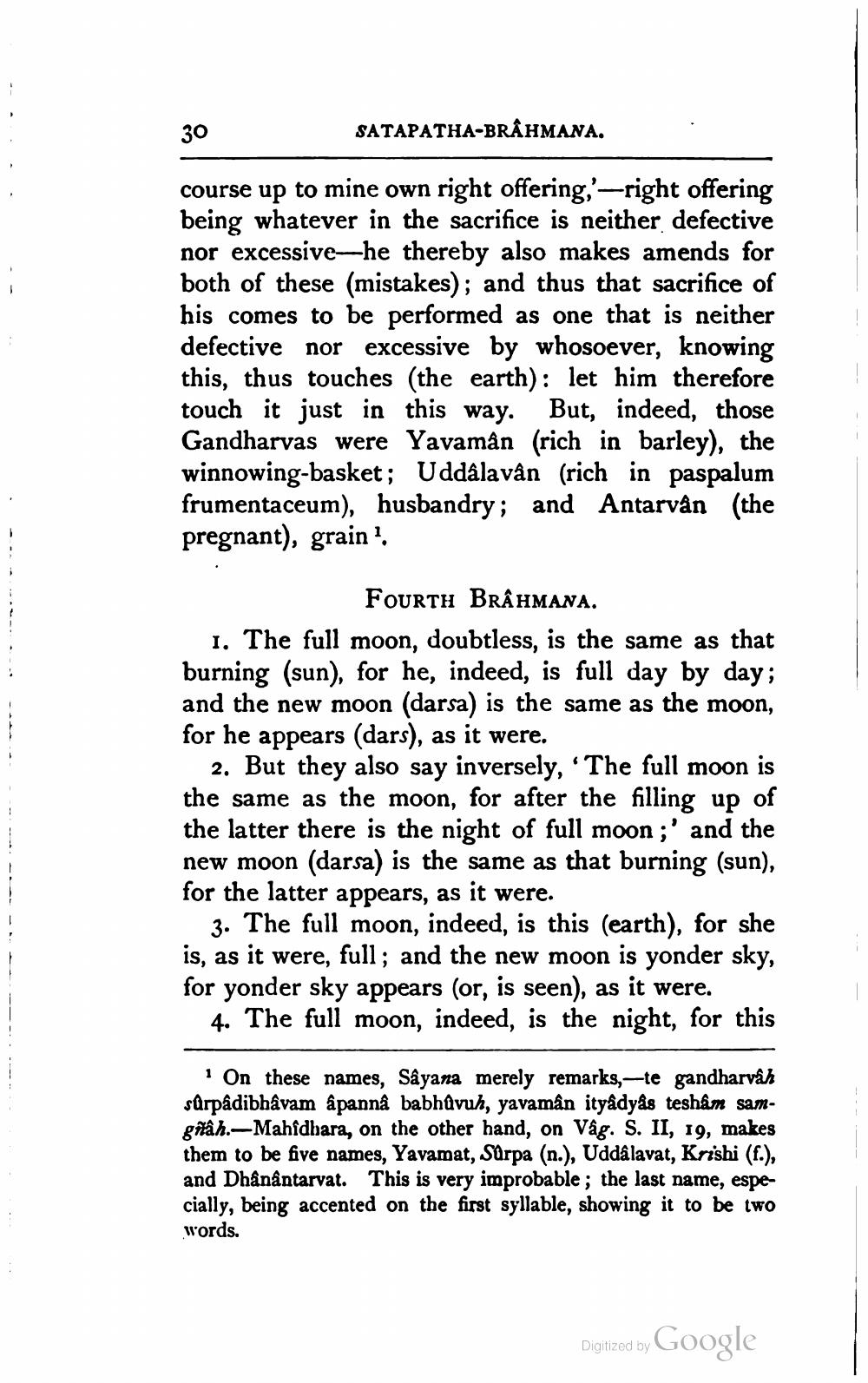________________
30
SATAPATHA-BRAHMANA.
course up to mine own right offering,'-right offering being whatever in the sacrifice is neither defective nor excessive-he thereby also makes amends for both of these (mistakes); and thus that sacrifice of his comes to be performed as one that is neither defective nor excessive by whosoever, knowing this, thus touches (the earth): let him therefore touch it just in this way. But, indeed, those Gandharvas were Yavamân (rich in barley), the winnowing-basket; Uddâlavân (rich in paspalum frumentaceum), husbandry; and Antarvan (the pregnant), grain ?
Fourth BRÂHMANA. 1. The full moon, doubtless, is the same as that burning (sun), for he, indeed, is full day by day; and the new moon (darsa) is the same as the moon, for he appears (dars), as it were.
2. But they also say inversely, 'The full moon is the same as the moon, for after the filling up of the latter there is the night of full moon;' and the new moon (darsa) is the same as that burning (sun), for the latter appears, as it were.
3. The full moon, indeed, is this (earth), for she is, as it were, full; and the new moon is yonder sky, for yonder sky appears (or, is seen), as it were.
4. The full moon, indeed, is the night, for this
1 On these names, Sâyana merely remarks,-te gandharvah sürpâdibhavam âpannâ babhūvuh, yavamân ityâdyås teshâm samgiâh.-Mahîdhara, on the other hand, on Vág. S. II, 19, makes them to be five names, Yavamat, Surpa (n.), Uddalavat, Krishi (f.), and Dhânântarvat. This is very improbable ; the last name, especially, being accented on the first syllable, showing it to be two words.
Digitized by Google




